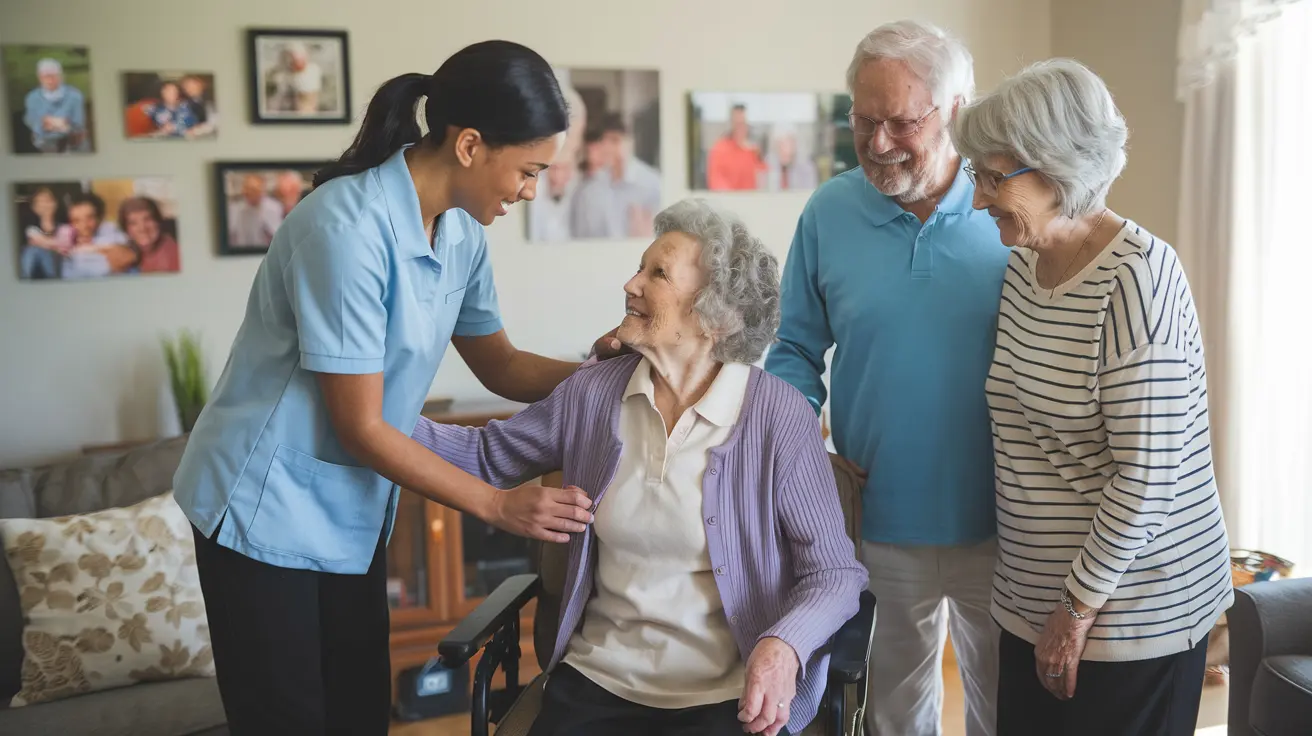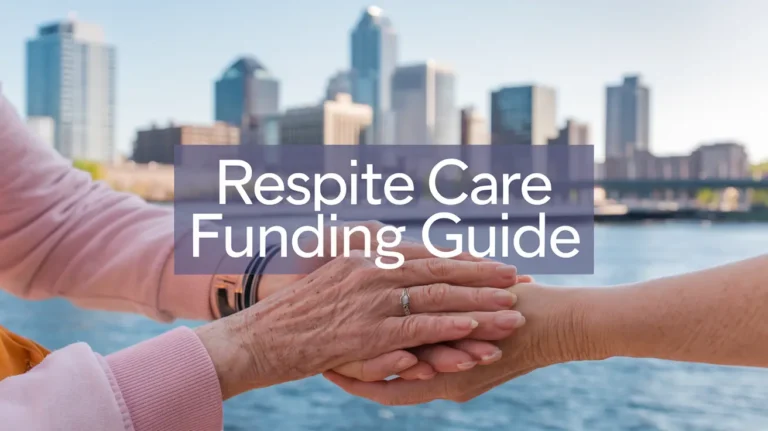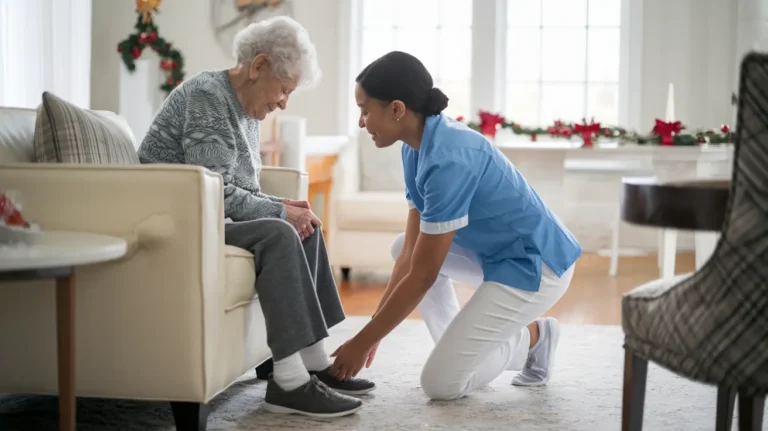Essential Types of Respite Care in Indianapolis: Finding the Right Support for Your Loved One
Did you know that over 40% of family caregivers report high levels of emotional stress, and about a third experience physical strain from their caregiving duties? I’ve seen these statistics play out in real life, both personally and professionally. Caring for a loved one is one of the most rewarding things I’ve ever done, but man, it can really drain you if you don’t get a break!
That’s where respite care comes in – it’s basically a lifeline for family caregivers like you and me. Respite care provides temporary relief for primary caregivers, giving them a much-needed chance to rest, recharge, and take care of their own needs. Trust me, I learned the hard way that you can’t pour from an empty cup!

Here in Indianapolis, we’re fortunate to have Brightness Home Care LLC as a specialized provider of respite services. Located at 4911 West 38th Street in Indianapolis, they’ve become my go-to recommendation for families needing a breather. I remember when my neighbor Janet was at her wit’s end caring for her mom with dementia – Brightness stepped in with just the right kind of support, and it made all the difference for both of them.
In this article, I’ll walk you through the different types of respite care available right here in Indianapolis. Whether you’re looking for in-home care where professionals come to you, community-based programs that offer socialization opportunities, or facility options for more intensive needs – there’s something out there that can work for your situation. I’ve tried several options myself with my own father, and I’m excited to share what I’ve learned along the way!
Let’s dive into understanding these options so you can find the perfect respite solution for your loved one and give yourself the break you absolutely deserve. Because honestly? Taking care of yourself isn’t selfish – it’s essential for being the best caregiver you can be.
Understanding Respite Care: A Lifeline for Family Caregivers
You know what’s crazy? I never thought I’d become an expert on respite care until my own mom needed full-time care a few years back. Let me tell you, that experience was eye-opening! I was trying to balance work, my own family, and taking care of her, and I hit a wall. That’s when I discovered respite care, and it literally saved my sanity.
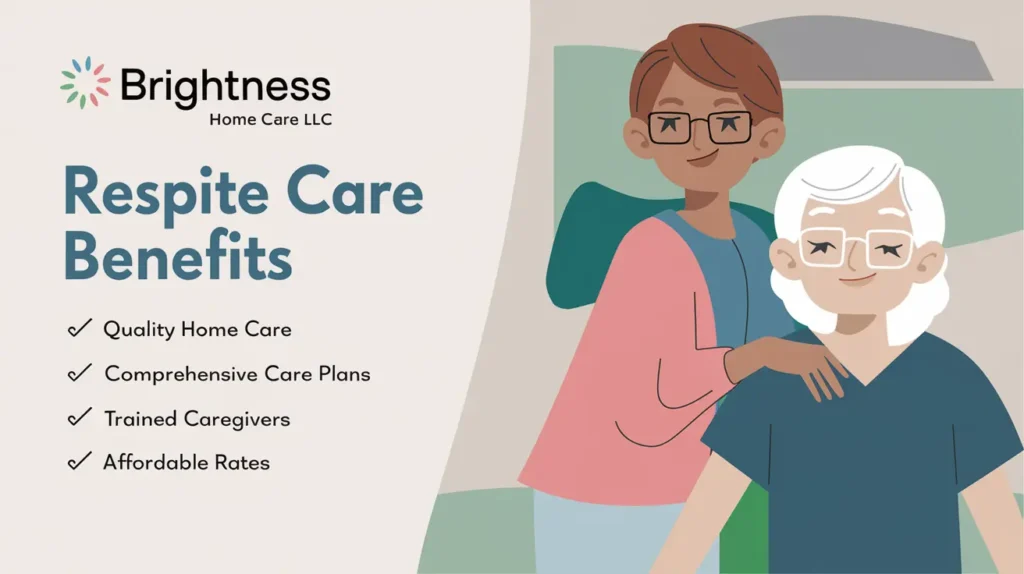
Respite care is basically a short-term break for primary caregivers. It’s like getting a substitute teacher, but for caregiving! These temporary care services give family caregivers a chance to rest, recharge, and take care of their own needs while knowing their loved one is in good hands.
I remember feeling so guilty the first time I considered getting help. Like, shouldn’t I be able to handle everything? That’s complete nonsense, I know now. Everyone needs a break!
Signs You Might Need Respite Services
Let’s be real – caregiving is HARD work. I’ve been there, and I bet many of you reading this have too. Here are some signs that you might need to look into respite care:
You’re feeling constantly exhausted and can’t remember the last time you had a good night’s sleep. Been there!
Your own health is starting to suffer. I actually developed high blood pressure during my first year as a caregiver.
You’re feeling increasingly irritable or impatient with your loved one. This happens to the best of us, trust me.
You’ve stopped doing activities you enjoy because there’s just no time. I missed so many book club meetings I eventually got kicked out! (They let me back in later, thankfully.)
You’re feeling isolated from friends and family. The loneliness of caregiving was something I wasn’t prepared for.
If you’re nodding your head to any of these, please consider reaching out for respite care. I waited way too long, and it almost cost me my job and my marriage.
The Real Benefits of Respite Care
The benefits of respite care go way beyond just getting a break (although that’s pretty huge). Here’s what I’ve experienced personally and seen with other caregivers:
For caregivers, respite provides essential time to rest and recharge. I used my first respite period to literally just sleep for like 12 hours straight. It was glorious.
It reduces stress and helps prevent burnout. My stress levels dropped dramatically once I started scheduling regular respite breaks.
It allows you to maintain your own identity and interests outside of caregiving. I finally got back to my painting hobby after almost a year of not touching a brush!
It improves your patience and overall quality of care. I found I was a MUCH better caregiver when I wasn’t running on empty all the time.
But here’s something people don’t talk about enough – respite care benefits the care recipient too! My mom actually enjoyed having different people to talk to and interact with. It gave her new social connections and stimulation that I alone couldn’t provide.
Many care recipients experience improved mood, engagement, and even physical health when their primary caregiver gets regular breaks. It’s a win-win situation!
Common Misconceptions About Respite Care
Let me clear up some myths about respite care that I used to believe myself:
“Using respite care means I’m failing as a caregiver.” Nope! It actually means you’re smart enough to recognize your limits and brave enough to ask for help. That’s strength, not weakness.
“My loved one will feel abandoned.” This was my biggest fear! But I found that with proper introduction and transition, most care recipients adjust really well. My mom actually looked forward to visits from her respite caregiver, Maria, who had amazing stories about growing up in Puerto Rico.
“Respite care is too expensive.” While cost can be a concern, there are many affordable options and even financial assistance programs available. Brightness Home Care LLC in Indianapolis offers various payment options and can help you navigate potential funding sources.
“No one else can provide care as well as I can.” I was CONVINCED of this. But guess what? Some respite caregivers have specialized training that actually made them better at certain aspects of care than I was. It was humbling but also a relief.
“Respite care is only for emergencies.” This is a big one! Regular, scheduled respite should be part of your ongoing care plan, not just something you turn to in crisis. I now schedule respite care every Tuesday and Thursday afternoon, and it’s made a world of difference.
Types of Respite Care Available
Here in Indianapolis, we’re fortunate to have several types of respite care options. The main categories include:
In-home respite care, where a caregiver comes to your home. This is what Brightness Home Care LLC specializes in, and it’s great because your loved one stays in their familiar environment.
Community-based programs like adult day centers. These provide social activities and care during daytime hours.
Facility-based respite, which involves short-term stays at residential facilities. This can range from overnight to several weeks.
I’ve personally tried all three types at different points in my caregiving journey, and they each have their advantages depending on your situation.
When to Consider Respite Care
Ideally, you should incorporate respite care into your caregiving routine BEFORE you feel overwhelmed. I made the mistake of waiting until I was already burned out, which made it harder to arrange care and trust others.
Respite care can be especially beneficial during high-stress periods, like holidays or when you’re dealing with your own health issues. I remember getting the flu last winter and being absolutely terrified about who would care for my mom. Having an established relationship with Brightness Home Care LLC meant I could quickly arrange extra help when I needed it most.
It’s also helpful when you need to attend important events, travel for work, or simply take a vacation. Yes, caregivers deserve vacations too! I finally attended my niece’s wedding in Colorado last year, and it was only possible because of reliable respite care.
Planning for regular respite breaks—whether it’s a few hours each week or longer periods monthly—can help maintain your well-being and the quality of care you provide. I wish someone had told me this from day one!
Finding Quality Respite Care in Indianapolis
When I first started looking for respite care in Indianapolis, I felt totally lost. There seemed to be so many options, but how could I know which was right for my mom?
After some trial and error, I discovered Brightness Home Care LLC located at 4911 West 38th Street in Indianapolis. Their approach to respite care impressed me right away. They took the time to understand my mom’s specific needs, preferences, and routines. This personalized attention made the transition so much smoother than I expected.
What really stands out about Brightness is their commitment to matching caregivers based on both skills and personality. My mom’s primary respite caregiver shares her love of classic movies and cooking shows, which instantly gave them something to bond over.
Another thing I’ve learned? Don’t be afraid to ask lots of questions when interviewing potential respite care providers. Ask about their training, experience with your loved one’s specific condition, how they handle emergencies, and their approach to care. Your comfort and confidence in their abilities are crucial.
Respite care isn’t just a service—it’s a relationship that supports both you and your loved one through the caregiving journey. Finding the right provider makes all the difference in the world.
To wrap up this section, I want to emphasize that respite care isn’t a luxury—it’s a necessity for sustainable caregiving. If you’re caring for a loved one in Indianapolis, please don’t wait until you’re at your breaking point to seek help. Reach out to learn about the types of respite care available and find the option that works best for your unique situation.
Taking care of yourself isn’t selfish; it’s essential. As they say on airplanes, you need to put on your own oxygen mask before helping others. The same principle applies to caregiving!
In-Home Respite Care Services in Indianapolis
Let me tell you about the first time I arranged in-home respite care. I was so nervous! I kept rearranging the furniture and writing these super detailed notes about my dad’s routine. The respite caregiver—her name was Janelle—just smiled and said, “Honey, I’ve been doing this for 15 years. We’ll be just fine.” And you know what? They were!
In-home respite care is exactly what it sounds like—professional caregivers come to your home to provide care while you take a break. It’s probably the most popular type of respite care, and for good reason. There’s something really comforting about knowing your loved one can stay in their familiar environment with all their stuff around them.
How In-Home Respite Actually Works
I remember being confused about the logistics at first. Like, do I stay in the house? Do I leave? How long should I be gone? So let me break it down based on my experience.
Typically, a trained caregiver comes to your home for a scheduled period—could be a few hours, a full day, overnight, or even multiple days depending on your needs. Brightness Home Care LLC is super flexible with their scheduling, which was a lifesaver for me when I had that emergency dental surgery last year!
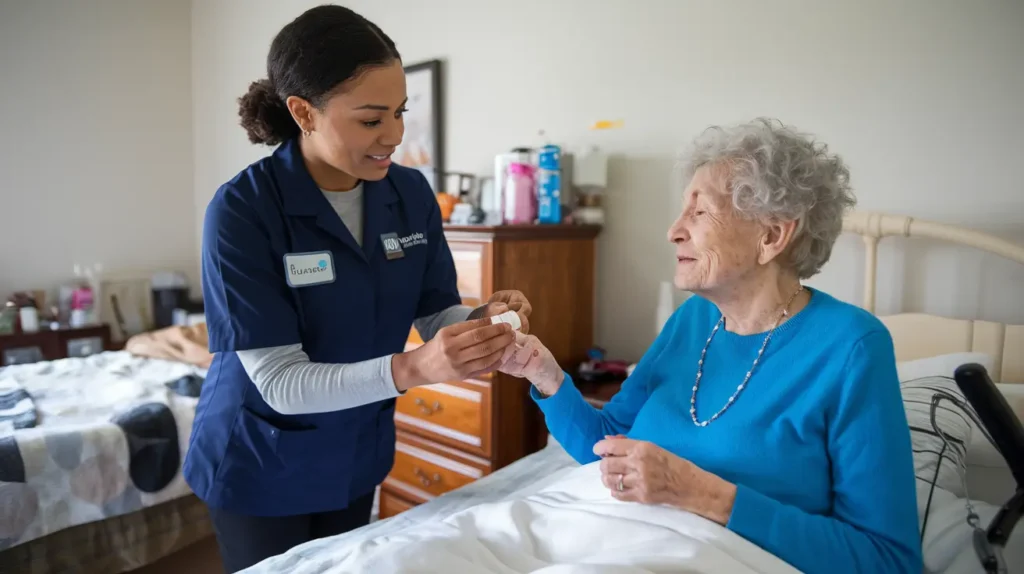
The respite caregiver essentially steps into your shoes, handling whatever care tasks you normally would. For my dad, that included medication reminders, help with lunch, and most importantly, someone to watch his favorite game shows with him. I swear he and his respite caregiver had a whole “Price is Right” rivalry going!
You can use this time however you want—run errands, attend your own doctor appointments, meet friends for lunch, or just take a nap. I actually started taking a yoga class during my regular Tuesday respite hours, and it’s become my weekly sanity-saver.
Services Typically Included in In-Home Respite
One thing I didn’t realize at first was just how comprehensive in-home respite care can be. Here’s what Brightness Home Care LLC typically includes:
Companionship and social interaction. This was HUGE for my dad who’s quite the chatterbox. Having someone new to talk to brightened his whole week.
Personal care assistance with bathing, dressing, grooming, and toileting. I was super awkward discussing these needs at first, but the care coordinator at Brightness was so professional about it.
Meal preparation and feeding assistance. The respite caregiver even wrote down my dad’s recipe for scrambled eggs (with way too much pepper) because he insisted on teaching her “the right way.”
Medication reminders (though they usually can’t administer medications). They helped my dad stay on his complicated med schedule.
Light housekeeping and laundry. Coming home to clean dishes and fresh laundry felt like such a luxury!
Assistance with mobility and transfers. This became especially important after dad’s hip surgery.
Recreational activities and mental stimulation. Dad’s respite caregiver brought over crossword puzzles they could work on together, which he absolutely loved.
I was honestly amazed at how tailored the services could be. When I mentioned that dad gets anxious if the mail isn’t brought in and sorted right away, they made sure to add that to his care routine. It’s those little things that really matter.
The Big Advantages of In-Home Respite Care
After trying different types of respite care, I’ve come to appreciate some major benefits of the in-home option:
Comfort and familiarity of home environment. My dad has mild dementia, and keeping him in familiar surroundings significantly reduced his confusion and anxiety.
One-on-one attention from the caregiver. Unlike facility settings where staff care for multiple people, in-home care means your loved one gets undivided attention.
Maintenance of existing routines. Dad could keep his quirky schedule (lunch at 11:30 AM sharp, nap at 2:00 PM, Jeopardy at 3:30 PM) without disruption.
Reduced exposure to illnesses. This became especially important during flu season and recent health concerns.
Flexibility in scheduling. Whether you need regular weekly respite or occasional coverage for special events, in-home care can usually accommodate.
I remember talking to another caregiver at a support group who said, “In-home respite lets me leave the house without leaving my mom’s comfort zone.” That summed it up perfectly for me.
My Experience with Brightness Home Care LLC
When I finally decided to try in-home respite care in Indianapolis, I researched several providers. What stood out about Brightness Home Care LLC was their thorough assessment process. They didn’t just ask about dad’s medical needs—they wanted to know about his personality, preferences, interests, and even his quirks (and boy, does he have plenty!).
Their office at 4911 West 38th Street in Indianapolis was actually not far from me, which gave me extra peace of mind knowing they could respond quickly if needed. The coordinator spent nearly two hours with us during the initial meeting, observing how I provided care and taking detailed notes.
The matching process was something I really appreciated. They specifically looked for caregivers who had experience with dementia care AND shared some of dad’s interests. They found him a respite caregiver who was a former high school history teacher—perfect for my history buff father!
I’ll be honest—the first time I left them together, I only went to the grocery store down the street and kept my phone in my hand the entire time. But by the third visit, I felt comfortable enough to actually go see a movie with a friend. That felt like such a victory!
Cost Considerations for In-Home Respite
Let’s talk money, because that was definitely a concern for me. In-home respite care typically costs between $20-30 per hour in Indianapolis, depending on the level of care needed and the time of day. Overnight care tends to be a bit more expensive.
I initially thought it was completely out of my budget, but Brightness Home Care LLC helped me explore several payment options:
Long-term care insurance—turns out dad’s policy covered a certain number of respite hours monthly! I had no idea until they mentioned it.
Veterans benefits—if your loved one served in the military, they might qualify for the VA’s respite program.
Medicaid waivers—Indiana has waiver programs that can cover respite services for eligible individuals.
State and local funding programs—Brightness connected me with a local program that subsidized some of our respite costs.
Sliding fee scales—some providers offer reduced rates based on income.
Even with these options, I still had to budget carefully. I started with just 4 hours of respite care weekly and gradually increased as I figured out how to manage the costs. I also discovered that having even that small break made me more productive at work, which actually helped our financial situation in the long run.
Getting Started with In-Home Respite Care
If you’re considering in-home respite care in Indianapolis, here’s my advice based on personal experience:
Start the conversation early, before you’re in crisis mode. I wish I’d arranged respite care when dad first moved in with me, not six months later when I was already exhausted.
Be thorough during the assessment process. Share everything about your loved one’s needs, preferences, and habits. I created a “Day in the Life” document that walked through dad’s typical day hour by hour, which the respite caregivers found super helpful.
Consider starting with a short trial period. Our first session was just 3 hours, which felt manageable for both dad and me.
Prepare your loved one in advance. I talked with dad for several days about his “new friend” who would be visiting to spend time with him. Framing it as companionship rather than “care” made it more acceptable to him.
Stay nearby but out of sight for the first visit if possible. I pretended to leave but actually just sat in my car in the driveway for the first hour, which probably wasn’t necessary but gave me peace of mind!
Give yourself permission to actually enjoy your respite time. The first few times, I felt so guilty that I couldn’t even relax. Now I treasure those hours and make the most of them.
In-home respite care has been a game-changer for my family. It’s allowed me to maintain my own health and relationships while ensuring dad receives excellent care. If you’re feeling overwhelmed with caregiving responsibilities in Indianapolis, please consider reaching out to Brightness Home Care LLC to learn more about their in-home respite options. Trust me, both you and your loved one will benefit!
I’ll now create the detailed content for the third H2 section of the outline.
Community-Based Respite Programs Available in Indianapolis
When I first started exploring respite care options, I had no idea there were so many community-based programs in Indianapolis! I was focused entirely on in-home care until another caregiver at my support group mentioned how much her husband enjoyed going to an adult day center. That conversation opened up a whole new world of possibilities for us.
Community-based respite programs provide care outside the home in a group setting, typically during daytime hours. They can be a fantastic option if your loved one is relatively mobile and enjoys social interaction. My aunt Lucille was always a social butterfly, so this type of respite turned out to be perfect for her personality.
Adult Day Care Centers in Indianapolis
I remember the first time I dropped Lucille off at an adult day center. I was a nervous wreck! But when I picked her up five hours later, she was chatting away about the new friends she’d made and showing me an art project she’d completed. I hadn’t seen her that animated in months!

Adult day centers provide structured activities, meals, and supervision in a safe, supportive environment. Most centers in Indianapolis operate weekdays from around 7:00 AM to 6:00 PM, though hours can vary.
What really surprised me was the range of activities they offer. At the center Lucille attended, they had:
Daily exercise classes modified for different mobility levels. Lucille particularly loved the seated dance class!
Arts and crafts sessions. She made more refrigerator-worthy art in her 70s than my kids did in elementary school!
Music therapy and sing-alongs. This was especially beneficial for participants with memory issues.
Cognitive stimulation activities like trivia, word games, and puzzles.
Guest speakers and entertainers. They even had a local magician visit monthly, which Lucille absolutely raved about.
Holiday celebrations and birthday parties. The social aspect was so important for Lucille, who had become somewhat isolated living with me.
Some centers in Indianapolis also offer health monitoring services like blood pressure checks and medication reminders. The center we used had a nurse on staff who noticed Lucille’s ankles were swelling and suggested we follow up with her doctor—catching an issue before it became serious!
When researching adult day centers, I learned that some specialize in specific conditions like dementia or Parkinson’s disease. If your loved one has particular needs, it’s worth asking about specialized programming.
Community Recreation Programs with Respite Components
I literally stumbled across this option by accident! I was at the community center signing my son up for basketball when I noticed a flyer for their “Golden Hours” program for seniors. Turns out, many parks and recreation departments in Indianapolis offer programs that can function as respite care.
These programs typically run for shorter periods—maybe 2-4 hours—and focus on recreational activities rather than personal care. They’re perfect if your loved one is fairly independent but needs some supervision and social engagement.
Lucille participated in a twice-weekly gardening program through our local park. They had raised beds accessible to people with mobility issues, and participants got to take home the vegetables they grew. She absolutely loved it and would talk about “her tomatoes” all summer long!
The YMCA and JCC in Indianapolis also offer senior programs that can provide respite. The Y has a fantastic water exercise class that many caregivers use as respite time—their loved ones get exercise and socialization while they get a break.
These community recreation options tend to be more affordable than formal respite programs, though they provide less comprehensive care. Some operate on a drop-in basis, while others require registration.
Specialized Programs for Specific Conditions
This was a real eye-opener for me. I discovered there are respite programs specifically designed for people with particular conditions or needs.
For example, when my neighbor’s husband was diagnosed with early-stage Alzheimer’s, she found a memory care day program that specialized in cognitive stimulation appropriate for his condition. The staff knew exactly how to engage him without causing frustration.
Indianapolis has several specialized day programs, including:
Dementia-specific programs with staff trained in memory care techniques. These programs often incorporate reminiscence therapy and sensory activities.
Programs for adults with developmental disabilities that focus on life skills and community integration.
Day programs for people recovering from stroke or traumatic brain injury that incorporate rehabilitative activities.
Programs for veterans that understand the unique needs of those who have served.
What I love about these specialized programs is that the staff truly understand the specific challenges of each condition. When Lucille developed Parkinson’s symptoms, we switched to a program where the staff knew exactly how to assist with her mobility issues and understood the “on/off” periods with her medication.
Brightness Home Care LLC can often help connect you with these specialized community resources as part of their comprehensive care approach. Even though their focus is in-home care, they recognize the value of community programs and can help coordinate transportation and scheduling.
Transportation Services for Community Respite
Transportation was initially a huge barrier for us. I couldn’t always drive Lucille to her day program, and she wasn’t able to drive herself. Fortunately, there are several transportation options in Indianapolis:
Many adult day centers offer their own transportation services, picking up participants from their homes and dropping them off afterward. This was a game-changer for our family!
IndyGo Access paratransit service provides door-to-door transportation for eligible individuals with disabilities.
CICOA Way2Go offers transportation services for older adults and people with disabilities in the Indianapolis area.
Some Medicare Advantage plans cover transportation to medical appointments and adult day services.
Brightness Home Care LLC can sometimes provide transportation to and from community respite programs as part of their services, which creates a seamless care experience.
Don’t let transportation concerns prevent you from exploring community-based respite options. There’s usually a solution if you know where to look!
How to Find and Access These Programs
When I first started searching for community respite programs, I felt completely overwhelmed. There seemed to be so many options, but little guidance on how to choose. Here’s what I learned through trial and error:
Start with CICOA Aging & In-Home Solutions, Central Indiana’s Area Agency on Aging. They maintain a database of respite options and can provide referrals based on your specific needs. Their caregiver support coordinators were incredibly helpful in narrowing down our options.
Contact the Alzheimer’s Association if your loved one has dementia. Their Greater Indiana Chapter has extensive knowledge of memory care respite programs.
Ask at your loved one’s doctor’s office. Many neurologists, geriatricians, and primary care physicians maintain lists of recommended respite programs.
Connect with caregiver support groups. Other caregivers are often the best source of firsthand information about program quality.
Reach out to Brightness Home Care LLC even if you’re primarily interested in community-based options. They can often help you create a comprehensive care plan that might include both in-home and community respite.
Most community programs will want to assess your loved one before enrollment. This usually involves an interview and possibly a trial visit. Be prepared to discuss medical needs, medications, mobility issues, cognitive status, and social preferences.
I found it helpful to visit several programs before making a decision. Pay attention to the staff-to-participant ratio, the types of activities offered, the facility cleanliness, and most importantly, how engaged the current participants seem.
Combining Community and In-Home Respite
One of my best discoveries was that respite care doesn’t have to be an either/or choice! Many families in Indianapolis, including ours, use a combination of community-based and in-home respite care.
For example, Lucille attended an adult day center three days a week, and we had a caregiver from Brightness Home Care LLC come to our home on Saturday mornings. This gave me regular breaks throughout the week plus weekend time to run errands or just relax.
The benefits of this combined approach are numerous:
Your loved one gets both the socialization of community programs and the personalized attention of in-home care.
You can match the type of respite to your specific needs on different days.
If your loved one has “good days” and “bad days,” you have flexible options.
Community programs are typically less expensive per hour but have fixed schedules, while in-home care is more flexible but generally costs more.
Brightness Home Care LLC was instrumental in helping us coordinate this mixed approach. They worked with the day center to ensure consistency in Lucille’s care and even helped us arrange transportation.
Community-based respite programs provide valuable socialization and structured activities that complement in-home care beautifully. They allow your loved one to maintain connections with the broader community while giving you essential time to recharge.
If you’re caring for a loved one in Indianapolis, I encourage you to explore the rich variety of community respite options available. Combined with quality in-home care from providers like Brightness Home Care LLC, these programs can help create a sustainable caregiving arrangement that benefits both you and your loved one.
I’ll now create the detailed content for the fourth H2 section of the outline.
Facility-Based Respite Care Options
Let me tell you about my first experience with facility-based respite care—it was definitely not what I expected! I had imagined sterile hospital rooms and bored residents, but the assisted living facility where my father stayed for a week while I attended my daughter’s college graduation was warm, engaging, and honestly, nicer than I’d imagined. Dad even joked that he was “at resort” and asked if they had a golf course!
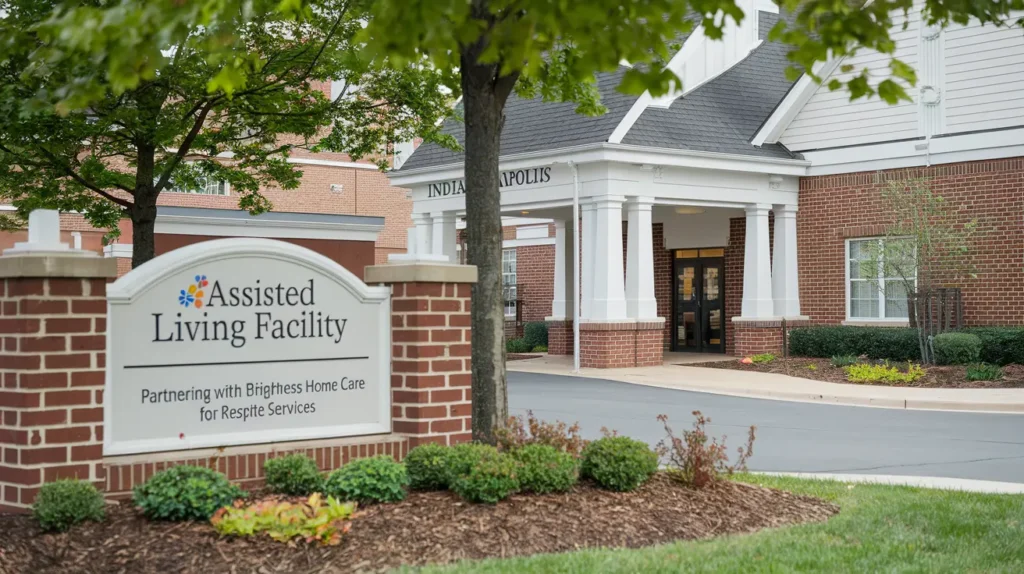
Facility-based respite care offers short-term stays at residential care facilities like nursing homes, assisted living communities, or memory care centers. This type of respite is perfect when you need extended breaks—anything from overnight to several weeks.
Short-Term Stays at Assisted Living Facilities
I was initially hesitant about assisted living respite. Would Dad feel abandoned? Would he get proper care? But after touring a few facilities in Indianapolis, I was pleasantly surprised by what they offered.
Most assisted living facilities set aside a few rooms specifically for respite stays. These are typically fully furnished (unlike regular resident rooms which people usually furnish themselves), which makes short-term stays much more practical. The respite suite where Dad stayed had a comfortable bed, small sitting area, TV, and private bathroom with grab bars and an emergency call system.
During his stay, Dad had access to all the same amenities as permanent residents:
Three daily meals in the dining room. Dad still talks about the “restaurant-style” dining where he could order from a menu rather than getting a standard tray!
Housekeeping and laundry services. They even labeled his clothes so nothing would get lost.
Scheduled activities and outings. He got to join a group trip to the Indianapolis Museum of Art, which he absolutely loved.
Assistance with personal care needs. The staff helped with his morning routine and medication management.
24-hour supervision and emergency response. This gave me incredible peace of mind while I was out of town.
What really surprised me was how quickly Dad adapted to the routine. By day two, he had made friends with his tablemates in the dining room and was participating in the morning exercise class. I actually worried he might not want to come back home!
The cost for assisted living respite typically ranges from $150-250 per day in Indianapolis, which includes room, board, care services, and activities. While it’s not inexpensive, it’s often comparable to what you’d pay for 24-hour in-home care.
Nursing Home Respite Programs
When Mom’s care needs increased following her stroke, assisted living respite was no longer sufficient. That’s when we explored nursing home respite options in Indianapolis.
Nursing homes offer the highest level of care outside of a hospital setting, with skilled nursing staff available 24/7. This makes them appropriate for people with complex medical needs, extensive physical limitations, or advanced dementia.
During Mom’s two-week respite stay (while I recovered from surgery), she received:
Skilled nursing care including wound management and administration of her complex medication regimen.
Physical and occupational therapy to maintain her mobility and skills.
Assistance with all activities of daily living from bathing to feeding.
Medical monitoring including regular vital signs and assessment of her swallowing difficulties.
I noticed nursing homes tend to be more structured than assisted living facilities, with set schedules for meals, medications, bathing, and activities. This structure can be reassuring for some care recipients but may feel restrictive to others. Mom actually appreciated the predictable routine.
Most nursing homes in Indianapolis that offer respite require a minimum stay of at least 5-7 days. They typically need recent medical records and a physician’s order before admission, so this option requires some advance planning.
Medicare may cover nursing home respite under certain circumstances, particularly if skilled nursing care is needed. Brightness Home Care LLC helped us navigate the paperwork to determine Mom’s eligibility, which was incredibly helpful during an already stressful time.
Memory Care Respite for Dementia Patients
When my aunt developed Alzheimer’s disease, we discovered yet another type of facility-based respite: specialized memory care respite. This was genuinely a game-changer for my cousin, her primary caregiver.
Memory care units are specifically designed for people with dementia, with enhanced safety features and staff trained in dementia care. The memory care facility we used had:
Secure entrances and exits to prevent wandering, with keypad access for visitors.
Circular hallway layouts to eliminate dead ends that can cause confusion and frustration.
Visual cues like color-coding and pictures to help residents navigate.
Specialized activities designed for various stages of cognitive impairment. I was amazed watching a music therapy session where residents who rarely spoke were singing along to songs from their youth!
Higher staff-to-resident ratios than typical assisted living.
The biggest difference I noticed was the staff approach. They were trained in techniques like validation therapy and redirection rather than reality orientation. When Aunt Martha talked about needing to “go home” to feed her dog (who had passed away years ago), they didn’t correct her but instead validated her feelings and gently redirected her attention.
Many caregivers I’ve met through support groups say that regular memory care respite stays have allowed them to continue caring for their loved ones at home much longer than would otherwise be possible. The breaks are essential for maintaining mental and physical health when caring for someone with dementia.
Scheduling and Duration Options
One of the things I love about facility-based respite is the flexibility in scheduling. In Indianapolis, I’ve found several different models:
Planned respite stays scheduled weeks or months in advance. This is perfect for when you have events like family weddings, vacations, or planned medical procedures.
Emergency respite for unexpected situations. When my brother had a car accident and I needed to be with him in the hospital, a local facility was able to accommodate Dad within 24 hours.
Regular rotating respite, where your loved one stays at a facility on a regular schedule—perhaps one weekend each month. I know a couple who does this to maintain their marriage while caring for his mother.
Seasonal respite, particularly around the holidays when caregiver stress tends to peak. Some facilities offer special holiday respite packages.
Most facilities in Indianapolis have minimum and maximum stay requirements. The minimum is typically 3-7 days, while the maximum might be 30 days at a time. However, Brightness Home Care LLC worked with us to find a facility that could accommodate a shorter overnight stay when that’s all we needed.
What to Expect During a Facility Stay
If you’re considering facility-based respite, here’s what I’ve learned about making it a positive experience:
The admission process is more involved than with other types of respite. Expect to complete paperwork about medical history, medications, allergies, preferences, and routines. Be thorough! I created a “care profile” document for Dad that included everything from his preferred wake-up time to how he likes his coffee.
Most facilities conduct a pre-admission assessment to ensure they can meet your loved one’s needs. This might be done in person or through records review.
Pack carefully. I made the mistake of sending Dad with too many belongings for his first stay, which created confusion. Now I pack just enough clothing for the stay plus a couple extras, comfort items like his own pillow and family photos, and personal care items he prefers.
Labeling EVERYTHING is essential. Things tend to get misplaced in facilities despite best efforts.
Consider how to manage the transition. I found that arriving with Dad, helping him unpack, and spending some time getting him settled made a huge difference in his adjustment. Some facilities even allow family members to have a meal with residents on the first day.
Communication expectations vary by facility. Some will provide daily updates, while others might only call if there’s an issue. Ask about their communication protocol before the stay begins.
Visiting policies also vary widely. Some facilities encourage family visits during respite stays, while others suggest limiting visits to help your loved one adjust to the temporary environment.
The discharge process usually involves reviewing any changes in condition or care needs observed during the stay. This information can be incredibly valuable for home caregivers!
Preparing Your Loved One for Facility Respite
This was my biggest concern—how to explain the respite stay to Dad without making him feel abandoned. Here’s what worked for us:
I framed it positively, emphasizing the amenities and activities available rather than my need for a break. “Dad, while I’m at Sarah’s graduation, you’ll be staying at Willow Gardens where they have movie nights and that physical therapy pool you liked when we visited.”
We visited the facility together before his stay. Meeting some staff members and seeing the room in advance made it feel less foreign when it was time for his actual stay.
I was honest about the duration. Giving a clear timeframe with a definite end date was reassuring for him.
We created a countdown calendar so he could track when I’d return. This simple tool reduced his anxiety significantly.
I brought elements of home to the facility—his own blanket, family photos, and even his favorite coffee mug.
I reassured him repeatedly that this was temporary and that he would be coming home. This was especially important as his short-term memory declined.
Facility-based respite can be an invaluable resource for caregivers who need extended breaks or have loved ones with care needs that are difficult to manage at home. While it requires more preparation than other types of respite, the comprehensive care provided can make it worth the effort.
If you’re in Indianapolis and exploring facility-based respite options, reach out to Brightness Home Care LLC for guidance. Even though their primary service is in-home care, they can help coordinate facility stays and even provide transportation to and from the facility. Their knowledge of local resources made our experience much smoother than it would have been otherwise.
Remember, using facility-based respite isn’t abandoning your loved one—it’s ensuring they receive proper care while you take care of yourself too. Both of you deserve that support!
I’ll now create the detailed content for the fifth H2 section of the outline.
Specialized Respite Care for Different Needs
You know what’s funny? When I first heard the term “respite care,” I thought it was a one-size-fits-all service. Boy, was I wrong! After caring for three different family members with completely different conditions, I’ve learned that specialized respite care can make all the difference in the world.
Let me share something I wish someone had told me earlier: respite care works best when it’s tailored to your loved one’s specific condition and needs. Generic care can miss important nuances that make your loved one comfortable and keep them safe.
Respite for Seniors with Dementia or Alzheimer’s
Caring for my mother-in-law with Alzheimer’s taught me more about patience than anything else in my life. When we finally looked into respite options, I was initially concerned about how she would handle the change in routine and unfamiliar faces.

What I discovered was that specialized dementia respite providers use specific approaches that regular caregivers might not know:
They understand the importance of consistent routines. Our respite caregiver from Brightness Home Care LLC kept Mom’s daily schedule exactly the same as ours, which minimized her confusion and agitation.
They’re trained in communication techniques that work with cognitive impairment. I was amazed watching how the caregiver used simple, clear instructions and visual cues rather than long explanations.
They know how to handle challenging behaviors without confrontation. When Mom became convinced someone had stolen her purse (which she had hidden in the linen closet), the respite caregiver didn’t argue but instead distracted her and later “found” the purse.
They’re prepared for sundowning symptoms. Our evening respite caregiver knew to adjust lighting, reduce stimulation, and use calming activities as the day progressed.
They create appropriate activities that provide stimulation without frustration. I noticed they focused on sensory activities and familiar tasks rather than new skills or complex games.
I’ll never forget the time I came home from my respite break to find Mom happily folding towels with the caregiver. It was a simple activity, but it gave her a sense of purpose and accomplishment that put her in a great mood.
Brightness Home Care LLC has caregivers with specialized training in dementia care, which makes a world of difference. They understand the disease progression and know how to adapt care techniques as needs change.
Respite for Individuals with Disabilities
My nephew has cerebral palsy, and my sister’s experience finding appropriate respite care was eye-opening for our whole family. Respite for individuals with disabilities often requires additional considerations:
Caregivers need training in specific transfer techniques and mobility assistance. I watched my sister demonstrate exactly how to help him move from his wheelchair to the couch, and the respite caregiver practiced until they got it right.
They may need knowledge of adaptive equipment like communication devices, feeding tubes, or ventilators. My nephew uses an augmentative communication device, and his respite caregiver learned his system to communicate effectively with him.
Many individuals with disabilities have specific routines or sensory preferences that should be respected. For my nephew, certain sounds are overwhelming, and his respite caregiver was careful to maintain a calm environment.
Activity planning needs to be accessible but age-appropriate. I love that my nephew’s respite caregiver found ways to include him in typical young adult activities rather than treating him like a child.
Indianapolis has several respite options specifically for individuals with disabilities, including both in-home services and out-of-home programs. Brightness Home Care LLC has experience working with various disabilities and can match caregivers with appropriate training and experience.
What impressed me most about the disability-focused respite we found was their emphasis on independence. Rather than doing everything for my nephew, they focused on supporting him to do as much as he could for himself, which preserved his dignity and confidence.
Pediatric Respite Care Options
Before becoming a caregiver for my elderly parents, I was caring for my daughter with complex medical needs. Pediatric respite has its own unique considerations:
Caregivers often need specialized medical training for conditions like epilepsy, diabetes, or respiratory issues. Our pediatric respite nurse knew exactly what to do when my daughter had a seizure—something that would have terrified a caregiver without that specific training.
They understand developmental stages and age-appropriate activities. The respite caregivers always brought activities that my daughter enjoyed but that also supported her development.
They’re prepared to work with school schedules and educational needs. Our after-school respite provider helped with homework and reinforced therapist recommendations.
They can navigate the family dynamics, including siblings. I particularly appreciated how our respite caregiver made sure my son didn’t feel left out while still meeting my daughter’s care needs.
In Indianapolis, pediatric respite options include specialized in-home care, facility-based respite at children’s care centers, and even camp programs designed for children with medical needs or disabilities.
Brightness Home Care LLC works with families to understand the unique needs of children requiring specialized care and can provide appropriately trained caregivers. They even helped us coordinate with my daughter’s medical team to ensure consistent care approaches.
End-of-Life Respite Support
This is difficult to talk about, but end-of-life respite was invaluable during my father’s final months. When a loved one is receiving hospice care, respite becomes even more important—and more specialized:
Caregivers need training in pain management and comfort measures. Our end-of-life respite providers knew exactly how to position Dad to minimize his discomfort and recognized subtle signs of pain he couldn’t always verbalize.
They understand the emotional dynamics of terminal illness. They provided companionship to Dad that allowed him to express fears he sometimes protected me from hearing.
They’re prepared for medical emergencies but also understand when intervention isn’t appropriate. Our respite caregiver knew Dad’s advance directives and respected his wishes.
They can provide support not just to the patient but to family members as well. I’ll never forget how our respite caregiver made tea and just sat with me on a particularly difficult evening.
Many hospice programs in Indianapolis include respite care as part of their services. Additionally, Brightness Home Care LLC works closely with hospice providers to supplement their care and provide family caregivers with much-needed breaks.
The respite caregivers during this period became part of our support system in ways I never expected. Their experience with end-of-life care meant they could provide guidance and reassurance during a time when I felt completely out of my depth.
Brightness Home Care LLC’s Specialized Training Approach
What sets Brightness Home Care LLC apart in Indianapolis is their commitment to specialized training for their caregivers. When I inquired about respite care for my mother who has Parkinson’s disease, I was impressed by their approach:
They assess each client’s specific needs before matching them with caregivers who have relevant experience and training. Mom’s caregiver had previous experience with Parkinson’s and understood the fluctuations in her mobility throughout the day.
They provide condition-specific training for their caregivers, including dementia care, movement disorders, developmental disabilities, and end-of-life care. This isn’t just basic training—it’s comprehensive education on the nuances of different conditions.
They coordinate with clients’ healthcare providers to understand specific care protocols. Our caregiver actually attended one of Mom’s physical therapy sessions to learn the exercises the therapist recommended.
They update training as conditions progress or change. When Mom’s symptoms changed, her caregiver received additional training specific to her new needs.
They emphasize both technical skills and empathetic care. The technical knowledge is essential, but equally important is the ability to connect with clients in a meaningful way.
Located at 4911 West 38th Street in Indianapolis, Brightness Home Care LLC has become a trusted resource for families seeking specialized respite care. Their understanding that different conditions require different approaches has made them particularly valuable for caregivers like me who have struggled to find appropriate care.
Choosing the Right Specialized Respite Care
Based on my experience with different types of specialized respite, here’s my advice for finding the right fit:
Be specific about your loved one’s diagnosis and symptoms when inquiring about services. Don’t just say “my mom has dementia”—specify what stage, what behaviors are challenging, what her typical day looks like.
Ask detailed questions about caregivers’ training and experience with the specific condition. How many clients have they worked with who have similar needs? What specialized training have they completed?
Request a care plan that addresses the unique aspects of your loved one’s condition. A good provider will create an individualized plan, not use a generic template.
Consider doing a “trial run” with shorter respite periods before committing to longer breaks. This allows you to evaluate how well the specialized care meets your loved one’s needs.
Trust your instincts. If a provider doesn’t seem knowledgeable about your loved one’s condition or dismisses your concerns about specialized care, keep looking.
Specialized respite care isn’t just a luxury—it’s often necessary for both the safety of your loved one and your peace of mind. Knowing that your respite caregiver truly understands the nuances of your loved one’s condition makes it much easier to relax and recharge during your break.
If you’re caring for someone with specific needs in Indianapolis, reach out to Brightness Home Care LLC to discuss their specialized respite options. Their commitment to condition-specific training and individualized care planning makes them an excellent resource for caregivers seeking quality respite.
Remember, good specialized respite doesn’t just maintain your loved one’s care—it can actually enhance it by bringing in caregivers with specific expertise in their condition. That’s a win-win for everyone involved!
I’ll now create the detailed content for the sixth H2 section of the outline.
How to Choose the Right Type of Respite Care in Indianapolis
Let me tell you about my biggest mistake when looking for respite care—I rushed into the first option available without considering if it was actually the right fit for my situation. Big mistake! My mom ended up uncomfortable, I felt guilty, and the whole experience left us both hesitant to try respite care again. Don’t be like me!
Choosing the right type of respite care is like picking the right pair of shoes—what works perfectly for someone else might leave you with blisters. It’s an intensely personal decision based on your loved one’s specific needs, your caregiving situation, and practical considerations like location and budget.
Assessing Your Loved One’s Needs
Before you even start researching providers, take some time to assess what your loved one actually needs. I created a simple checklist that helped me get clear about my dad’s situation:
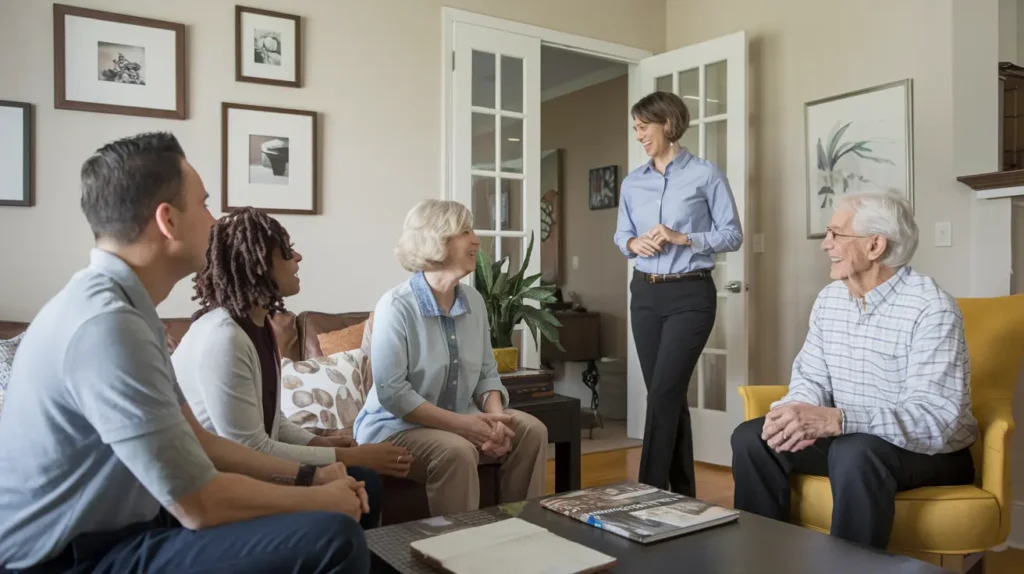
What level of physical assistance does your loved one require? My dad needed help with bathing and dressing but was otherwise fairly independent.
Do they have specific medical needs that require skilled care? Dad needed medication management and blood pressure monitoring.
What are their cognitive abilities? This significantly impacts what type of respite will work best. Dad had mild memory issues but was still oriented to time and place.
What are their social preferences? My dad was always a social butterfly, which made adult day centers a great fit for him.
Do they have mobility limitations? Dad used a walker, so accessibility was a major consideration.
What activities do they enjoy? Knowing Dad loved music and card games helped us find programs with those offerings.
Are there specific behavioral challenges to consider? For instance, if your loved one has sundowning symptoms with dementia, evening respite needs special consideration.
How do they typically respond to new environments and people? Dad was pretty adaptable, but my aunt found changes extremely stressful, which made in-home respite a better option for her.
Being honest about your loved one’s needs—not where you wish they were—is crucial for finding appropriate respite care. When I finally admitted that Dad’s “occasional forgetfulness” was actually consistent short-term memory loss, we found much more appropriate care options.
Evaluating Your Caregiving Situation
Next, think about your own needs as a caregiver. This isn’t selfish—it’s practical! Consider:
What type of break do you need most? I initially thought I just needed a few hours to run errands, but what I really needed was overnight respite so I could get uninterrupted sleep.
How long and how frequent do your breaks need to be? Weekly short breaks? Monthly longer breaks? Both?
What’s your comfort level with different types of care? I realized I was more comfortable with in-home care at first but gradually became open to facility-based options.
What’s your schedule like? If you work full-time, day programs might align better with your needs than evening respite.
What’s your budget for respite services? Be realistic about what you can sustain financially.
Do you have other family members who can help with care? This might influence how much formal respite you need.
What would make the biggest difference in your stress level and quality of life? For me, it was having one full day weekly when I didn’t have to be “on call.”
I found it helpful to keep a caregiving journal for a couple of weeks, noting when I felt most stressed and what would have helped in those moments. The pattern became clear—I needed regular, predictable breaks rather than emergency respite only when I was already burned out.
Questions to Ask Potential Providers
Once you’ve clarified both your loved one’s needs and your own, it’s time to interview potential providers. Here are questions I wish I’d asked from the beginning:
For All Providers:
What type of training do your caregivers receive? Is there specific training for my loved one’s condition?
How do you match caregivers with clients? Can we request a meet-and-greet before committing?
What is your backup plan if the assigned caregiver is unavailable?
How do you handle emergencies?
What is your screening process for caregivers?
How do you maintain quality of care? Is there supervision?
What are your rates, and what payment methods do you accept?
Do you accept long-term care insurance, veterans benefits, or Medicaid?
What is the minimum scheduling requirement? How far in advance do we need to book?
For In-Home Respite (like Brightness Home Care LLC):
Can the same caregiver provide care consistently?
What specific services are included? What’s not included?
How do you handle house keys and security?
Can caregivers transport my loved one to appointments or activities?
For Adult Day Centers:
What is the ratio of staff to participants?
What activities are offered throughout the day?
How do you handle medical needs or medications?
What meals and snacks are provided?
Is transportation available?
For Facility-Based Respite:
What is the admission process?
Can we tour the facility and see the actual room that would be used?
How do you maintain continuity of care with our home routine?
What should we bring/not bring?
What is your visitation policy during respite stays?
I found it helpful to create a simple spreadsheet to compare different providers based on these questions. It made it much easier to see which option aligned best with our needs.
Creating a Respite Care Plan
After evaluating different providers, the next step is creating a respite care plan. This was a game-changer for us! A good respite care plan includes:
A regular schedule for planned respite. We scheduled in-home respite every Tuesday and Thursday afternoon, plus one weekend a month for facility respite.
Contingency plans for emergency respite needs. We identified two providers who could accommodate last-minute requests.
A “care profile” document with details about your loved one’s routine, preferences, medications, emergency contacts, etc. I keep this updated and share it with all respite providers.
Clear communication protocols—how and when providers should contact you during respite periods.
Goals for respite care—both what you hope to accomplish during your breaks and what you’d like your loved one to gain from the experience.
When we started working with Brightness Home Care LLC, they helped us develop this plan and regularly reviewed it with us to make adjustments as needed. Having a formal plan made the whole process less stressful and more effective.
Trial Periods and Adjustments
Here’s something I learned the hard way: don’t commit to long-term arrangements without a trial period! Most quality respite providers in Indianapolis, including Brightness Home Care LLC, will accommodate short trial periods to ensure a good fit.
For in-home respite, start with a 2-4 hour visit. Stay nearby for the first trial (I literally sat in my car in the driveway reading a book during our first in-home respite session).
For day centers, many offer a free or reduced-cost trial day. Go with your loved one initially and stay for a while before leaving.
For facility respite, consider a weekend stay before booking a longer period.
After each trial, evaluate honestly:
How did your loved one respond? Were they comfortable? Engaged? Distressed?
How did the provider handle any challenges that arose?
Did you feel confident in the care being provided?
What could be improved for next time?
Don’t be discouraged if the first option isn’t perfect. We tried three different in-home caregivers before finding the perfect match for Dad. It’s worth taking the time to find the right fit.
Making Respite Care Work for Your Family
Once you’ve found the right type of respite care, here are some tips for making it a positive experience for everyone:
Be thorough in your preparation. The more information you provide to respite caregivers, the better care they can deliver. I created a binder with Dad’s information that went with him to all respite situations.
Establish clear communication channels with providers. I preferred text updates for non-urgent matters and phone calls for anything requiring immediate attention.
Start with shorter respite periods and gradually increase as your loved one becomes comfortable with the arrangement.
Create positive associations with respite care. I always scheduled something Dad enjoyed for the day the respite caregiver came, like making his favorite lunch or planning a special activity.
Address problems promptly. If something isn’t working, speak up rather than letting frustration build.
Recognize that there may be an adjustment period. The first few times we used respite care, Dad was a bit anxious. By the third time, he was greeting his respite caregiver with a big smile.
Actually use your respite time for yourself! I initially found myself running errands or doing household chores during every respite period. Now I make sure at least half of my respite time is used for genuine self-care.
Consider combining different types of respite to create a comprehensive care plan. We use Brightness Home Care LLC for in-home respite during weekdays and occasionally use facility respite for weekend breaks.
Finding the right type of respite care in Indianapolis takes some effort, but it’s absolutely worth it. The right respite arrangement gives you essential breaks while providing quality care for your loved one. Brightness Home Care LLC, located at 4911 West 38th Street, specializes in creating personalized respite solutions and can guide you through this decision-making process.
Remember, good respite care isn’t just about giving you a break—it’s about enhancing your loved one’s life with new experiences and interactions while preserving their dignity and comfort. When you find that perfect match, it transforms the caregiving experience for everyone involved.
Paying for Respite Care in Indianapolis
Figuring out how to pay for respite care gave me serious headaches when I first started looking into options for my mom. I remember sitting at my kitchen table surrounded by insurance paperwork, feeling completely overwhelmed. Let me save you some of that stress by sharing what I’ve learned about funding respite care in Indianapolis.
Insurance coverage for respite care can be hit or miss, honestly. Most private health insurance plans don’t automatically cover respite services, but that doesn’t mean you’re out of luck. I discovered that some long-term care insurance policies actually do include respite care benefits. It was a total game-changer for my family! If you have long-term care insurance, grab your policy documents and look specifically for respite coverage limitations, daily benefit amounts, and any waiting periods.
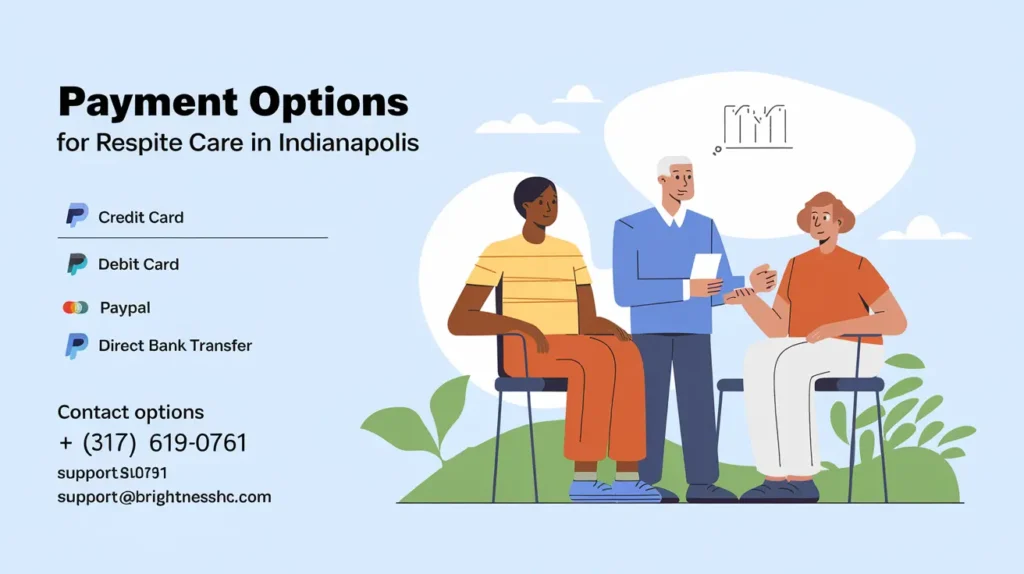
I made the mistake of assuming my mom’s regular health insurance would cover everything. Don’t be like me! Call your insurance provider directly and ask specific questions about respite care coverage. Sometimes they’ll cover respite if it includes certain medical services or if it’s prescribed by a doctor. The key is knowing exactly what to ask for.
Medicare’s approach to respite care is pretty limited, which I found super frustrating. Traditional Medicare (Part A) only covers respite care when it’s part of hospice benefits, and even then, it’s just for inpatient stays up to five days at a time. Not exactly generous, right? But here’s something I wish someone had told me earlier: if your loved one has a Medicare Advantage plan, they might have additional respite care benefits that standard Medicare doesn’t offer. It’s definitely worth investigating!
Medicaid coverage in Indiana offers more possibilities through waiver programs. The Aged & Disabled Waiver and the MFP (Money Follows the Person) program can provide respite care funding for eligible individuals. Getting approved isn’t always quick or easy—trust me, I’ve been there—but the financial relief can be substantial. The application process requires documentation of both medical need and financial eligibility, so start gathering those documents early.
Don’t overlook veterans benefits if your loved one served in the military. The VA offers a respite care benefit that many families don’t know about! My neighbor’s father is a veteran, and they get up to 30 days of respite care per year. The VA’s Aid and Attendance benefit can also help cover care costs. You’ll need to contact the local VA office or a veterans service officer to navigate the application process, which can be a bit of a maze. But seriously, it’s worth the effort!
Local funding resources in Indianapolis have been a lifesaver for many families I’ve met. The CICOA Aging & In-Home Solutions organization offers caregiver support programs that sometimes include respite funding. I also discovered that the Alzheimer’s Association Greater Indiana Chapter provides respite care grants for families caring for someone with dementia. These grants aren’t huge, but they helped me afford a weekend off when I desperately needed it.
Churches and community foundations sometimes offer respite care scholarships or financial assistance too. It’s not always advertised, so you might need to make some calls. I found a local church program through another caregiver in my support group—networking really pays off!
Now, about Brightness Home Care LLC—they’ve really impressed me with their approach to payment options. Unlike some agencies that only accept private pay, Brightness Home Care accepts multiple payment methods and works with various funding sources. They’re located at 4911 West 38th Street in Indianapolis, which was conveniently close to my mom’s place.
What I appreciate most about Brightness is their transparent pricing structure. They were upfront about costs when I called, which was refreshing after dealing with agencies that seemed to hide their fees. They also have a sliding fee scale for families with financial need and offer package deals for regular respite services that can bring down the hourly rate.
When my brother and I couldn’t afford full-time respite care, Brightness Home Care helped us create a mixed funding plan. We combined our private pay with some veterans benefits my mom qualified for, and they handled all the paperwork for billing the VA. Talk about stress relief!
Don’t be afraid to ask about payment plans, either. When unexpected expenses hit my family hard last year, Brightness worked with us to create a manageable payment schedule. Their financial coordinator even helped us identify additional funding sources we hadn’t considered.
One thing I learned the hard way: start exploring payment options before you’re in crisis mode. When my mom fell and I suddenly needed emergency respite care, I wasn’t prepared for the financial side of things. Now I tell everyone to investigate funding options early, even if you don’t need services immediately.
If you’re feeling overwhelmed by respite care costs, you’re not alone. I remember crying in my car after getting quotes from several agencies. But there are more options than you might think, especially if you’re willing to combine different funding sources. Brightness Home Care LLC understands this reality and works with families to make respite care affordable.
The financial coordinator at Brightness actually sat down with me for over an hour to review all possible payment options. That kind of personalized attention made a huge difference in my confidence about affording the care my mom needed. They’re genuinely committed to making respite care accessible to Indianapolis families.
Remember that investing in respite care is also investing in your own health and wellbeing as a caregiver. I tried to handle everything myself for too long, and it affected my health, my job performance, and my other relationships. Finding affordable respite care through Brightness Home Care wasn’t just a financial decision—it was a lifeline for our entire family.
Getting Started with Respite Care at Brightness Home Care LLC
Oh boy, I remember my first time looking for respite care. I was completely overwhelmed and had no idea where to start! After years of working in this field, I’ve seen firsthand how intimidating it can be to take that first step. That’s why I want to walk you through how Brightness Home Care LLC makes the process as smooth as possible.
The Initial Assessment: It’s All About Your Loved One
When you first reach out to Brightness Home Care LLC at their Indianapolis location on West 38th Street, they don’t just jump straight into scheduling. Nope! They start with a comprehensive assessment, which I think is absolutely crucial.
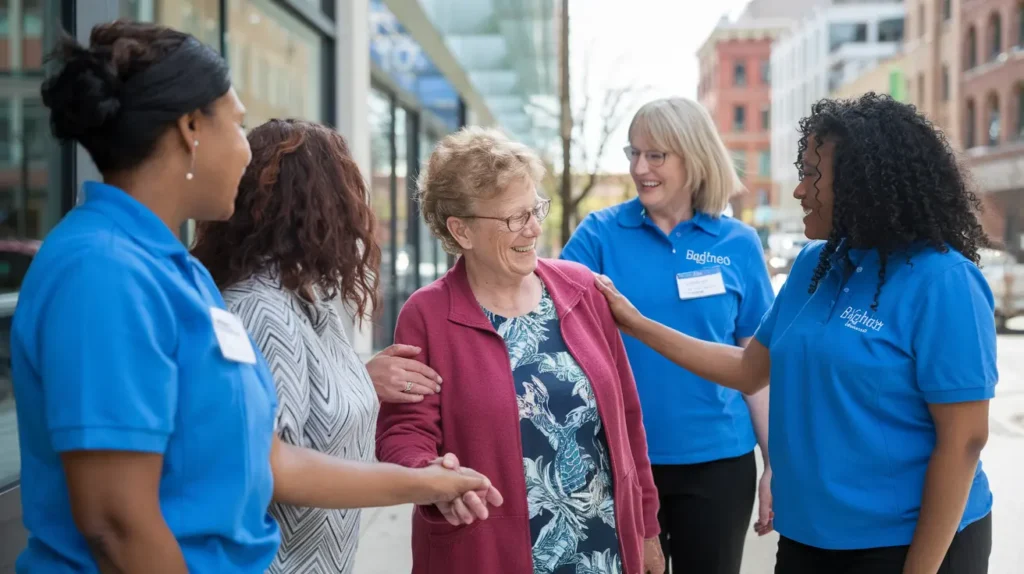
The assessment process typically begins with a phone conversation where they’ll ask about your caregiving situation and immediate needs. Nothing too complicated—just trying to get a general picture. Then comes the part that really sets them apart: a face-to-face meeting, usually at your loved one’s home.
During this visit, a care coordinator will observe the home environment, chat with your loved one (if appropriate), and dig deeper into specific care requirements. They’ll ask questions about mobility, medication, daily routines, preferences, and any challenging behaviors. I’ve sat in on these assessments, and let me tell you, they don’t rush through it!
The coordinator will also talk with you about your specific respite needs. Do you need a few hours each week? A full weekend once a month? Emergency backup for unexpected situations? Trust me, being clear about these needs upfront makes everything so much easier down the road.
Matching Magic: Finding the Right Caregiver
Here’s where things get really interesting! Brightness doesn’t just assign whoever happens to be available. Their matching process is pretty darn impressive, and it’s something I wish more agencies would prioritize.
After the assessment, they look at several factors to find the perfect caregiver match:
Care needs: Does your loved one need basic companionship, personal care assistance, or specialized care for a condition like dementia? They’ll match accordingly.
Personality and interests: If your dad loves talking about classic cars, they’ll try to find a caregiver who can engage in those conversations. It makes such a difference!
Experience level: Some situations require caregivers with specific experience or certifications, and Brightness takes this seriously.
I once worked with a family whose mother was extremely shy and uncomfortable with new people. The coordinator specifically selected a caregiver with a gentle, patient approach who was willing to take things slow. Within a few visits, they had developed a wonderful relationship. That kind of thoughtful matching is priceless!
Flexible Scheduling That Actually Works For YOU
Let’s be real—rigid scheduling is a nightmare for busy families! One thing I absolutely love about Brightness Home Care is their flexibility. They understand that respite needs don’t always fit into neat little boxes.
Their scheduling options include:
Regular weekly slots: Maybe you need every Wednesday afternoon to attend your own medical appointments or support group. They can lock that in.
Rotating schedules: Some families need different days each week based on changing work schedules. Not a problem!
Occasional respite: Perhaps you only need coverage for your monthly book club or special events. They accommodate that too.
Last-minute care: While they can’t always guarantee availability without notice, they maintain a roster of caregivers who can respond to urgent situations when possible.
Extended respite: Planning a vacation or family wedding? They can provide care for several consecutive days.
I remember one particularly stressful week when my regular arrangement fell through at the last minute. I called Brightness in a panic, and although it wasn’t easy, they shuffled some schedules and found coverage within hours. I literally cried with relief! That flexibility can be an absolute lifesaver.
Building Trust: The Foundation of Great Respite Care
Let’s talk about the elephant in the room—trusting strangers to care for your loved one is HARD. I get it! I’ve been there, pacing the floor wondering if I made the right choice. Brightness Home Care understands this concern deeply.
They build trust through several important practices:
Consistent caregivers: Whenever possible, they send the same caregivers to your home. This consistency helps build familiarity and comfort for your loved one.
Transparent communication: Caregivers maintain detailed notes about each visit, and you’ll receive regular updates.
Open door policy: They encourage families to call with questions or concerns at any time. Seriously, any time!
Supervision and quality checks: Supervisors conduct periodic check-ins to ensure care meets their standards.
One thing that really impressed me was their orientation process. Before starting regular visits, they offered to have the assigned caregiver come while I was still home. This gave us all a chance to get comfortable together before I left my mother in their care. Such a simple thing, but it made a world of difference for my peace of mind!
Real Stories, Real Results: Success at Brightness
I could talk all day about processes and policies, but nothing speaks louder than real experiences. The success stories from Brightness clients paint a powerful picture of what quality respite care can do.
Take Margaret and her husband James, for instance. James has Parkinson’s, and Margaret was experiencing serious health issues herself from caregiver burnout. They started with just four hours of respite twice a week. Within a month, Margaret’s blood pressure had improved, and she was sleeping better. James actually looked forward to his caregiver visits because they played chess together—something Margaret never had time for anymore.
Then there’s the Wilson family. Their adult daughter with developmental disabilities needed supervision while they attended their son’s out-of-state wedding. They were terrified to leave her with someone new. Brightness arranged multiple short visits beforehand to build rapport, and the weekend was a complete success. The family got to fully participate in their son’s wedding while knowing their daughter was in good hands.
One of my favorite stories involves an elderly gentleman who refused all outside help, insisting his son could handle everything. The son was at his breaking point. Brightness introduced a caregiver who shared the gentleman’s interest in model trains. What started as reluctant acceptance of “a visitor” to talk about trains evolved into a trusted care relationship. The son finally got regular breaks, and his father gained a genuine friend.
I’ve made plenty of mistakes in my caregiving journey, and one of the biggest was waiting too long to seek respite care. Don’t do what I did and push yourself to the brink of exhaustion! The team at Brightness Home Care LLC at 4911 West 38th Street in Indianapolis understands the complex emotions involved in seeking help. They approach each new client with compassion, professionalism, and a genuine desire to support both caregiver and care recipient.
Their thoughtful assessment process, careful caregiver matching, flexible scheduling options, and commitment to building trust set them apart in the Indianapolis respite care landscape. Whether you need a few hours a week or more substantial support, taking that first step could be the beginning of a healthier, more sustainable caregiving journey for your entire family.
Conclusion
Whew, what a journey we’ve been on exploring respite care! I remember when I first started working with families needing breaks from caregiving—I had no idea how crucial these services really were. After seeing the transformation in both caregivers and their loved ones when quality respite is provided, I’m convinced it’s one of the most important services we can offer families.
Let’s face it—caregiving is tough. Really tough. I’ve seen the exhaustion in parents’ eyes when they haven’t had a break in months. I’ve watched spouses try to balance their own health needs while caring for partners. Respite care isn’t just a luxury; it’s an absolute necessity for sustainable caregiving. Without these breaks, we risk the health of both the caregiver and the person receiving care.
Indianapolis is actually pretty lucky when it comes to respite options. From in-home care where providers come to you, to adult day programs that offer socialization, to facility-based options for longer breaks—there’s something for practically every situation. I remember feeling overwhelmed trying to navigate all these choices with my own mom, so don’t feel bad if you’re confused! The important thing is that options exist.
And speaking of options, I gotta mention Brightness Home Care LLC based at 4911 West 38th Street in Indianapolis. These folks really get it. Their approach to respite care goes beyond just “babysitting” your loved one. I’ve seen firsthand how they take the time to match the right caregiver with each client, considering personality and specific care needs. Their caregivers receive specialized training in conditions like dementia, Parkinson’s, and other common challenges. They’re not just filling a shift—they’re providing genuine care.
One thing I appreciate about Brightness is their flexibility. Need just a few hours once a week? They can do that. Require overnight care so you can finally get some uninterrupted sleep? They’ve got you covered. Emergency situation where you suddenly need help? They’ll work with you to find a solution. That kind of flexibility is rare and so valuable.
Look, I know making that first call is hard. It took me forever to pick up the phone when my dad needed care. There’s guilt, uncertainty, and worry about introducing someone new into your loved one’s routine. But I promise—that call might be the most important step you take for both of you.
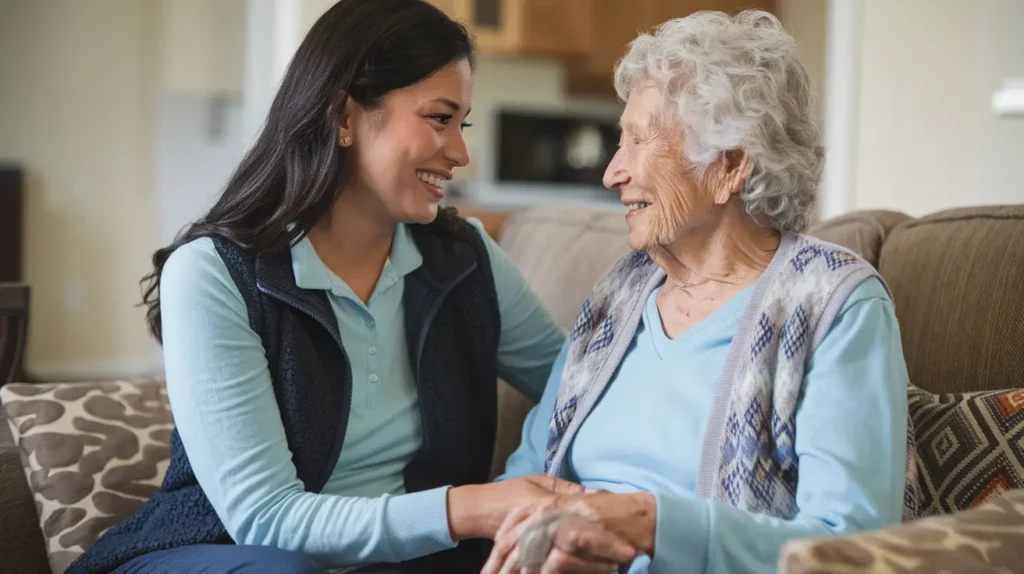
Why not give Brightness Home Care a call at +1 (317) 619-0761 to discuss your specific situation? Their assessment process is thorough but compassionate, and there’s absolutely no obligation. Even if you’re just gathering information for the future, they can help you understand your options and start thinking about what might work best for your family.
Remember—taking care of yourself isn’t selfish when you’re a caregiver. It’s necessary. Your loved one deserves the best version of you, and that means a version that gets breaks, maintains their own health, and can bring patience and energy to caregiving. Respite care makes that possible.
So what are you waiting for? Reach out to Brightness Home Care LLC today and take that first step toward a more sustainable caregiving journey. Your future self (and your loved one) will thank you!

